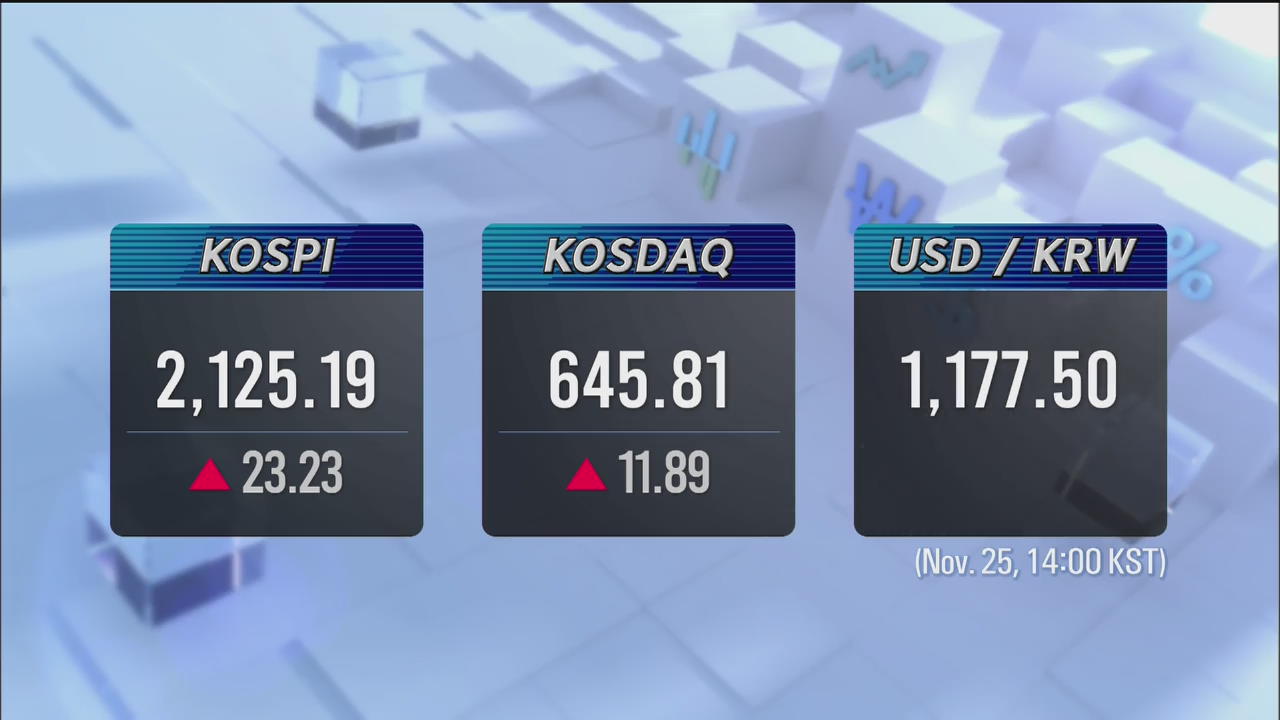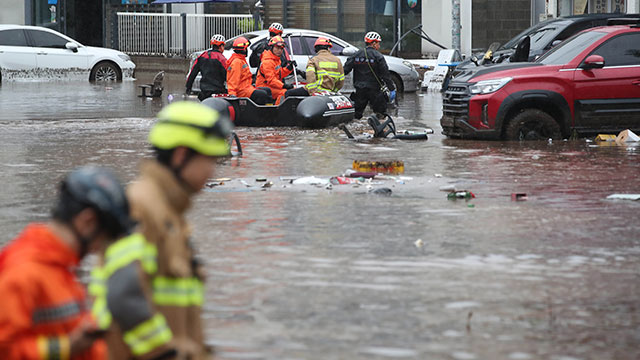URBAN BRANDING OF CITIES IN KOREA
입력 2019.11.25 (15:11)
수정 2019.11.25 (16:46)
읽어주기 기능은 크롬기반의
브라우저에서만 사용하실 수 있습니다.
[Anchor Lead]
Global cities these days have certain competitiveness qualities they are best known for. For instance, Italy's Milan is known for fashion and Paris is a famed tourist destination. Then what about cities in Korea? What are their brands? We take a look at today's TADA Korea.
[Pkg]
This scene from a movie... do you recognize its location? The seaside view and an old-fashioned town. This is the port city Incheon. In fact, the past and present coexist in Incheon, making it an appealing film location. Urban branding projects are well under way around the world to create an image to best represent the city. An event was recently held in Incheon themed around this very topic. A city brand is generated through the experience and word of mouth of people who visit that city or area. In this process, local residents develop an affection for their hometown or city. Subsequently, the area becomes known to outsiders through a certain curated image. In short, branding is an effort to increase the city's appeal.
[Soundbite] SIN BONG-HUN(INCHEON METROPOLITAN CITY) : "Incheon is home to a world class airport, an economic free zone as well as an old city town and port areas of the early modern era. It's where the past and future coexist. The forum is aimed at fostering more systematic efforts in city branding."
This notion of a city brand was first established in Korea in the mid-1990s when provincial autonomy was introduced. Since Seoul announced the slogan "Hi Seoul" for its brand in 2002, Korean cities nationwide have been developing their own quintessential representative brands.
[Soundbite] PROF. PARK SANG-HEE(KYUNG HEE UNIVERSITY) : "The value of a brand is an intangible, competitive asset. Just through the recognition, enormous benefits can be reaped now and in the future. It's important to build the city itself as a brand based on an identity different from other cities."
The image of Incheon accentuates the coexistence of the past and present. But officials are exploring various strategies to make Incheon an even more globally-appealing city. Then what is necessary to create a uniquely local but at the same time global city brand?
[Soundbite] PROF. PARK SANG-HEE(KYUNG HEE UNIVERSITY) : "The first step is analyzing which values each city carries. For instance, Seoul is known for landmarks and diverse experience while Incheon stands for the harmony of tradition and the new. City branding can successfully work through a long-term approach of story telling and concrete planning."
The key to successful city branding is bringing forth the value of a city through effective storytelling.
Global cities these days have certain competitiveness qualities they are best known for. For instance, Italy's Milan is known for fashion and Paris is a famed tourist destination. Then what about cities in Korea? What are their brands? We take a look at today's TADA Korea.
[Pkg]
This scene from a movie... do you recognize its location? The seaside view and an old-fashioned town. This is the port city Incheon. In fact, the past and present coexist in Incheon, making it an appealing film location. Urban branding projects are well under way around the world to create an image to best represent the city. An event was recently held in Incheon themed around this very topic. A city brand is generated through the experience and word of mouth of people who visit that city or area. In this process, local residents develop an affection for their hometown or city. Subsequently, the area becomes known to outsiders through a certain curated image. In short, branding is an effort to increase the city's appeal.
[Soundbite] SIN BONG-HUN(INCHEON METROPOLITAN CITY) : "Incheon is home to a world class airport, an economic free zone as well as an old city town and port areas of the early modern era. It's where the past and future coexist. The forum is aimed at fostering more systematic efforts in city branding."
This notion of a city brand was first established in Korea in the mid-1990s when provincial autonomy was introduced. Since Seoul announced the slogan "Hi Seoul" for its brand in 2002, Korean cities nationwide have been developing their own quintessential representative brands.
[Soundbite] PROF. PARK SANG-HEE(KYUNG HEE UNIVERSITY) : "The value of a brand is an intangible, competitive asset. Just through the recognition, enormous benefits can be reaped now and in the future. It's important to build the city itself as a brand based on an identity different from other cities."
The image of Incheon accentuates the coexistence of the past and present. But officials are exploring various strategies to make Incheon an even more globally-appealing city. Then what is necessary to create a uniquely local but at the same time global city brand?
[Soundbite] PROF. PARK SANG-HEE(KYUNG HEE UNIVERSITY) : "The first step is analyzing which values each city carries. For instance, Seoul is known for landmarks and diverse experience while Incheon stands for the harmony of tradition and the new. City branding can successfully work through a long-term approach of story telling and concrete planning."
The key to successful city branding is bringing forth the value of a city through effective storytelling.
■ 제보하기
▷ 카카오톡 : 'KBS제보' 검색, 채널 추가
▷ 전화 : 02-781-1234, 4444
▷ 이메일 : kbs1234@kbs.co.kr
▷ 유튜브, 네이버, 카카오에서도 KBS뉴스를 구독해주세요!
- URBAN BRANDING OF CITIES IN KOREA
-
- 입력 2019-11-25 15:13:27
- 수정2019-11-25 16:46:53

[Anchor Lead]
Global cities these days have certain competitiveness qualities they are best known for. For instance, Italy's Milan is known for fashion and Paris is a famed tourist destination. Then what about cities in Korea? What are their brands? We take a look at today's TADA Korea.
[Pkg]
This scene from a movie... do you recognize its location? The seaside view and an old-fashioned town. This is the port city Incheon. In fact, the past and present coexist in Incheon, making it an appealing film location. Urban branding projects are well under way around the world to create an image to best represent the city. An event was recently held in Incheon themed around this very topic. A city brand is generated through the experience and word of mouth of people who visit that city or area. In this process, local residents develop an affection for their hometown or city. Subsequently, the area becomes known to outsiders through a certain curated image. In short, branding is an effort to increase the city's appeal.
[Soundbite] SIN BONG-HUN(INCHEON METROPOLITAN CITY) : "Incheon is home to a world class airport, an economic free zone as well as an old city town and port areas of the early modern era. It's where the past and future coexist. The forum is aimed at fostering more systematic efforts in city branding."
This notion of a city brand was first established in Korea in the mid-1990s when provincial autonomy was introduced. Since Seoul announced the slogan "Hi Seoul" for its brand in 2002, Korean cities nationwide have been developing their own quintessential representative brands.
[Soundbite] PROF. PARK SANG-HEE(KYUNG HEE UNIVERSITY) : "The value of a brand is an intangible, competitive asset. Just through the recognition, enormous benefits can be reaped now and in the future. It's important to build the city itself as a brand based on an identity different from other cities."
The image of Incheon accentuates the coexistence of the past and present. But officials are exploring various strategies to make Incheon an even more globally-appealing city. Then what is necessary to create a uniquely local but at the same time global city brand?
[Soundbite] PROF. PARK SANG-HEE(KYUNG HEE UNIVERSITY) : "The first step is analyzing which values each city carries. For instance, Seoul is known for landmarks and diverse experience while Incheon stands for the harmony of tradition and the new. City branding can successfully work through a long-term approach of story telling and concrete planning."
The key to successful city branding is bringing forth the value of a city through effective storytelling.
Global cities these days have certain competitiveness qualities they are best known for. For instance, Italy's Milan is known for fashion and Paris is a famed tourist destination. Then what about cities in Korea? What are their brands? We take a look at today's TADA Korea.
[Pkg]
This scene from a movie... do you recognize its location? The seaside view and an old-fashioned town. This is the port city Incheon. In fact, the past and present coexist in Incheon, making it an appealing film location. Urban branding projects are well under way around the world to create an image to best represent the city. An event was recently held in Incheon themed around this very topic. A city brand is generated through the experience and word of mouth of people who visit that city or area. In this process, local residents develop an affection for their hometown or city. Subsequently, the area becomes known to outsiders through a certain curated image. In short, branding is an effort to increase the city's appeal.
[Soundbite] SIN BONG-HUN(INCHEON METROPOLITAN CITY) : "Incheon is home to a world class airport, an economic free zone as well as an old city town and port areas of the early modern era. It's where the past and future coexist. The forum is aimed at fostering more systematic efforts in city branding."
This notion of a city brand was first established in Korea in the mid-1990s when provincial autonomy was introduced. Since Seoul announced the slogan "Hi Seoul" for its brand in 2002, Korean cities nationwide have been developing their own quintessential representative brands.
[Soundbite] PROF. PARK SANG-HEE(KYUNG HEE UNIVERSITY) : "The value of a brand is an intangible, competitive asset. Just through the recognition, enormous benefits can be reaped now and in the future. It's important to build the city itself as a brand based on an identity different from other cities."
The image of Incheon accentuates the coexistence of the past and present. But officials are exploring various strategies to make Incheon an even more globally-appealing city. Then what is necessary to create a uniquely local but at the same time global city brand?
[Soundbite] PROF. PARK SANG-HEE(KYUNG HEE UNIVERSITY) : "The first step is analyzing which values each city carries. For instance, Seoul is known for landmarks and diverse experience while Incheon stands for the harmony of tradition and the new. City branding can successfully work through a long-term approach of story telling and concrete planning."
The key to successful city branding is bringing forth the value of a city through effective storytelling.
이 기사가 좋으셨다면
-
좋아요
0
-
응원해요
0
-
후속 원해요
0

















이 기사에 대한 의견을 남겨주세요.